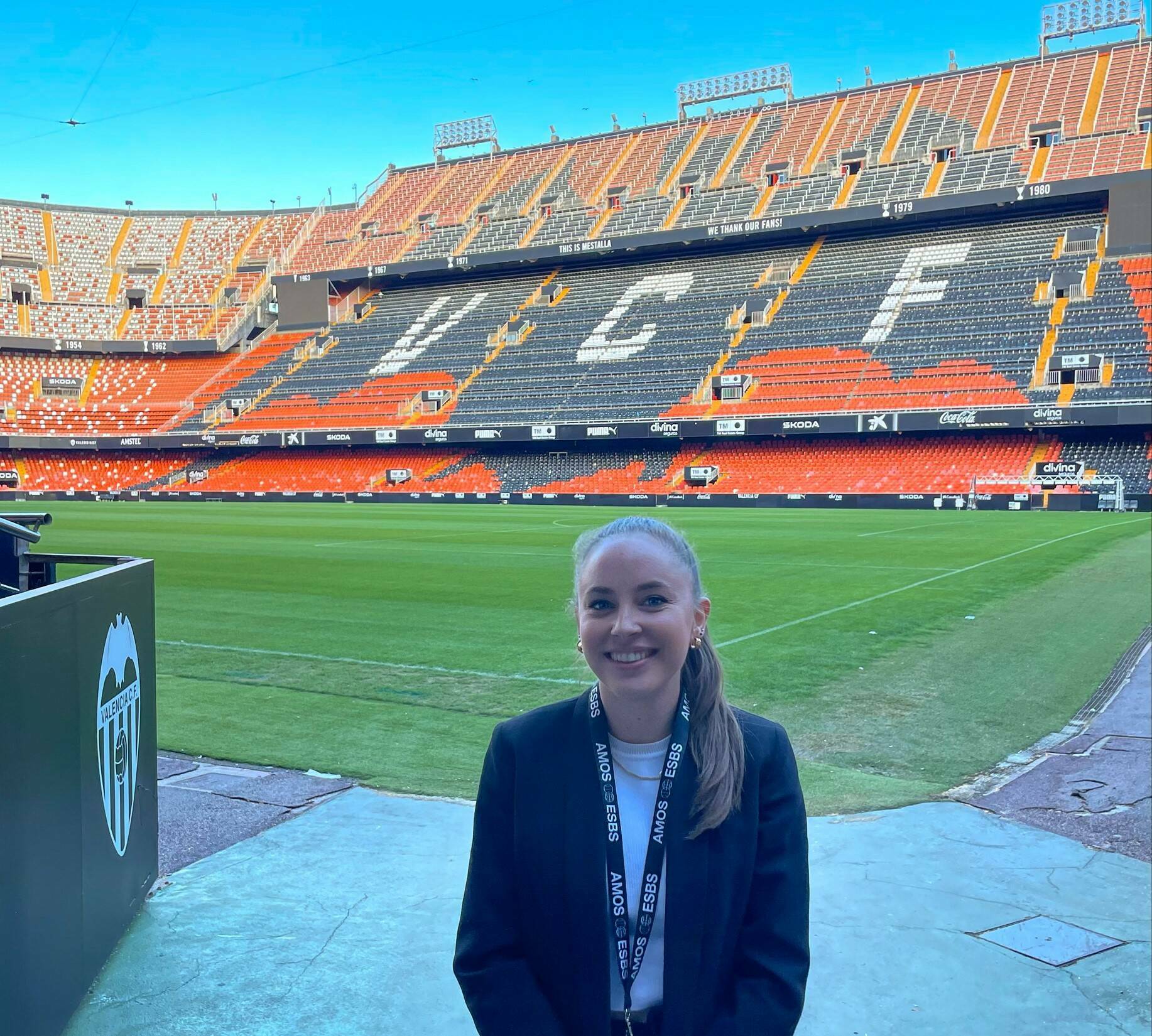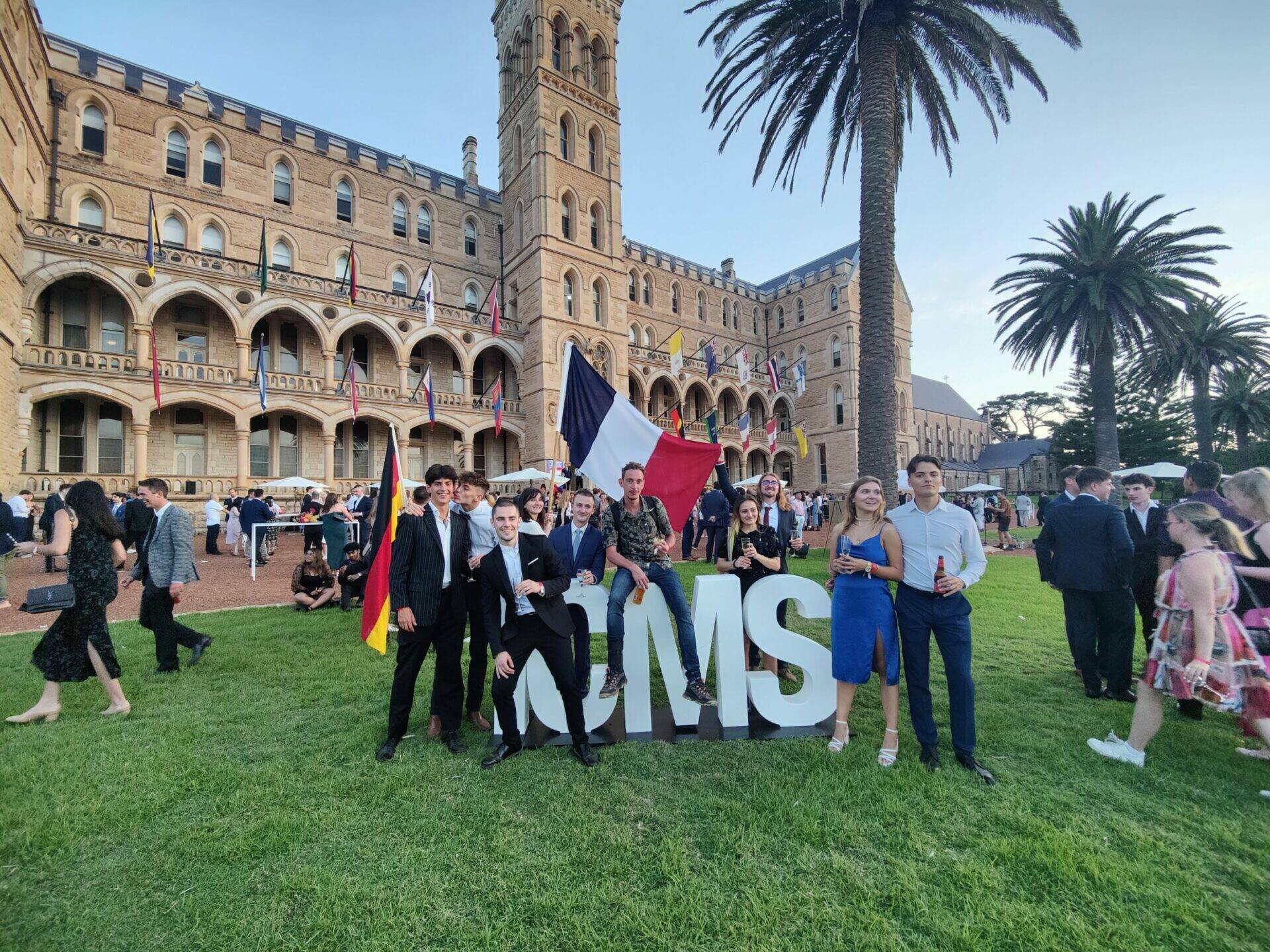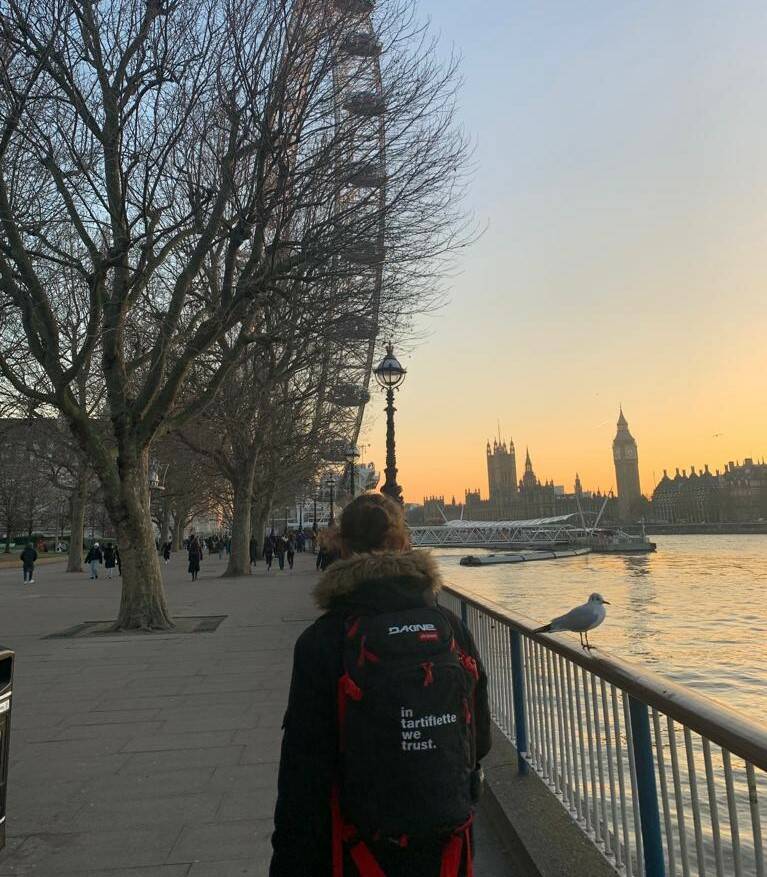Sports & Leisure Facility Operator
HOW TO BECOME A SPORTS & LEISURE FACILITY OPERATOR
Facility operators are genuine managers who are key in supporting sports clubs or leisure centers, and they are active on all fronts.
What is a sports facility operator?
A sports facility operator is a professional in charge of managing a sports or leisure facility. True project managers, these operators are responsible for both the technical and commercial aspects as well as the managerial and human issues pertaining to the supervision of sports activities. To this end, they provide (outdoor or indoor) facilities for sports clubs, while strictly complying with legal standards, particularly in terms of safety.
With the development of the leisure industry in Europe and around the world, this career clearly has a bright future ahead. However, successful candidates need to have more than one string to their bow to manage a large facility.
Sports facility operators may run a multisport center, for example. In this capacity, they are in charge of the center’s administration, grounds maintenance, the various classes available, major events, as well as of overseeing construction work and legal aspects of projects.
Here are a few examples of the type of facilities concerned:
- An accommodation facility (campground, self-catering accommodation, summer village
- a sports club[basketball, athletics, judo, tennis, riding center, volleyball, badminton, rowing, boxing, field hockey, handball, archery, rope park, karate, table tennis, gym or fitness center, pétanque, fencing, skating rink, squash, golf, aikido…]
- a movie theater
- a water sports center/lake [water skiing, canoeing, swimming pool, swimming, paddle, beach volleyball]
- a game room [arcade, billiards, bowling, casino, darts…]
- a ski resort
Operators who are quick to adapt to the different specificities of the facilities they manage will have a clear professional advantage. In fact, beyond management and administration, and depending on the type of establishment in question there may be specific tasks to handle. In fact, these specific tasks are usually what defines most of an operator’s job. There are a great many differences between managing a boxing gym, a shooting range, a sports hall, a stadium or a bowling alley.
Just to mention a few examples: the risk of drowning in a water park, the weather in a mountain resort, or handling animals in a riding center.
The second key to success is of course the operator’s diligence and sense of responsibility. There are quite a few facilities that may cater to sensitive populations, such as children or the elderly. Consequently, it is the operator’s responsibility to provide a fully secure environment to protect the public and employees from danger. Diligence also involves respecting a place and the people who work there. This could be, for example, providing good working conditions for coaches to encourage them to their best effort to teaching a sport. Treating animals well will encourage customers to visit again. Caring for landscapes and natural environments will strengthen the bond between nature and well-being, benefiting both customers and the environment, as well as the site’s appeal and reputation.
Operators must also be able to anticipate the tastes of customers and facility users alike. Barring a monopoly situation, customers are likely to have a choice of different sports or leisure venues. Therefore, it is the operator’s role to provide a differentiated offering to create a unique experience and secure customer loyalty. To this end, the team will have to deliver quality work, and succeed in impressing newcomers. This could mean finding attractive new rides for an amusement park, original golf courses, new ski slopes, modern machines for an arcade, improved amenities for a campsite, or eclectic programming for a cinema.
Key skills and qualities required to become a facility operator
Operating a sports or leisure facility requires a broad skill set.
Sports facility operators must demonstrate
strong leadership skills. To successfully manage facilities that often welcome hundreds or even thousands of people every week, knowing how to lead large teams is essential.
In addition, sports facility operators should demonstrate the following key qualities:
- Good management skills
- Excellent knowledge of sports
- Knowledge of technical innovations
- Strong organizational skills
- Good knowledge of the world of sports organizations
- Knowledge of public activities-related legislation
Salary range and career prospects
A sports facility operator’s compensation is difficult to quantify, as salaries can be doubled depending on the size and type of facility. What’s more, an operator’s salary is often proportional to the company’s profits, which means it will depend on the success of the facility’s activities.
However, net monthly entry level salaries usually range between €2,000 and €2,300. Mid-career, professionals typically earn between €2,300 and €3,000 net monthly. However, experienced operators who work for a large company can expect to earn over €5,000 net per month.
The sports and leisure facility management industry includes a wide range of careers. Activities may vary dramatically depending on the type of facility. This is why facility operators can expect a broad range of career opportunities. Those who wish to develop their own business could set up a sports facility or open a leisure center. An example is starting out as a sports club manager and then buying out the club a few years later.
What qualifications are required to become a sports and leisure facility operator?
A good manager of a sports facility has often worked in the field before taking on such responsibilities. If they know the business, the customers and the infrastructure, they’ll be better able to understand problems, respond to them and propose new activities.
To run an establishment, knowledge of marketing, sales and accounting is essential. A diploma from a sports business school can provide the student with all the necessary knowledge. Several options are available: Bachelor’s, Master’s in Sport Management, although a 5-year degree is still recommended.
A sports facility operator is a professional in charge of managing a sports or leisure facility. True project managers, these operators are responsible for both the technical and commercial aspects as well as the managerial and human issues pertaining to the supervision of sports activities. To this end, they provide (outdoor or indoor) facilities for sports clubs, while strictly complying with legal standards, particularly in terms of safety.
With the development of the leisure industry in Europe and around the world, this career clearly has a bright future ahead. However, successful candidates need to have more than one string to their bow to manage a large facility.
Sports facility operators may run a multisport center, for example. In this capacity, they are in charge of the center’s administration, grounds maintenance, the various classes available, major events, as well as of overseeing construction work and legal aspects of projects.
Here are a few examples of the type of facilities concerned:
- An accommodation facility (campground, self-catering accommodation, summer village
- a sports club[basketball, athletics, judo, tennis, riding center, volleyball, badminton, rowing, boxing, field hockey, handball, archery, rope park, karate, table tennis, gym or fitness center, pétanque, fencing, skating rink, squash, golf, aikido…]
- a movie theater
- a water sports center/lake [water skiing, canoeing, swimming pool, swimming, paddle, beach volleyball]
- a game room [arcade, billiards, bowling, casino, darts…]
- a ski resort
Operators who are quick to adapt to the different specificities of the facilities they manage will have a clear professional advantage. In fact, beyond management and administration, and depending on the type of establishment in question there may be specific tasks to handle. In fact, these specific tasks are usually what defines most of an operator’s job. There are a great many differences between managing a boxing gym, a shooting range, a sports hall, a stadium or a bowling alley.
Just to mention a few examples: the risk of drowning in a water park, the weather in a mountain resort, or handling animals in a riding center.
The second key to success is of course the operator’s diligence and sense of responsibility. There are quite a few facilities that may cater to sensitive populations, such as children or the elderly. Consequently, it is the operator’s responsibility to provide a fully secure environment to protect the public and employees from danger. Diligence also involves respecting a place and the people who work there. This could be, for example, providing good working conditions for coaches to encourage them to their best effort to teaching a sport. Treating animals well will encourage customers to visit again. Caring for landscapes and natural environments will strengthen the bond between nature and well-being, benefiting both customers and the environment, as well as the site’s appeal and reputation.
Operators must also be able to anticipate the tastes of customers and facility users alike. Barring a monopoly situation, customers are likely to have a choice of different sports or leisure venues. Therefore, it is the operator’s role to provide a differentiated offering to create a unique experience and secure customer loyalty. To this end, the team will have to deliver quality work, and succeed in impressing newcomers. This could mean finding attractive new rides for an amusement park, original golf courses, new ski slopes, modern machines for an arcade, improved amenities for a campsite, or eclectic programming for a cinema.
Operating a sports or leisure facility requires a broad skill set.
Sports facility operators must demonstrate
strong leadership skills. To successfully manage facilities that often welcome hundreds or even thousands of people every week, knowing how to lead large teams is essential.
In addition, sports facility operators should demonstrate the following key qualities:
- Good management skills
- Excellent knowledge of sports
- Knowledge of technical innovations
- Strong organizational skills
- Good knowledge of the world of sports organizations
- Knowledge of public activities-related legislation
A sports facility operator’s compensation is difficult to quantify, as salaries can be doubled depending on the size and type of facility. What’s more, an operator’s salary is often proportional to the company’s profits, which means it will depend on the success of the facility’s activities.
However, net monthly entry level salaries usually range between €2,000 and €2,300. Mid-career, professionals typically earn between €2,300 and €3,000 net monthly. However, experienced operators who work for a large company can expect to earn over €5,000 net per month.
The sports and leisure facility management industry includes a wide range of careers. Activities may vary dramatically depending on the type of facility. This is why facility operators can expect a broad range of career opportunities. Those who wish to develop their own business could set up a sports facility or open a leisure center. An example is starting out as a sports club manager and then buying out the club a few years later.
A good manager of a sports facility has often worked in the field before taking on such responsibilities. If they know the business, the customers and the infrastructure, they’ll be better able to understand problems, respond to them and propose new activities.
To run an establishment, knowledge of marketing, sales and accounting is essential. A diploma from a sports business school can provide the student with all the necessary knowledge. Several options are available: Bachelor’s, Master’s in Sport Management, although a 5-year degree is still recommended.






